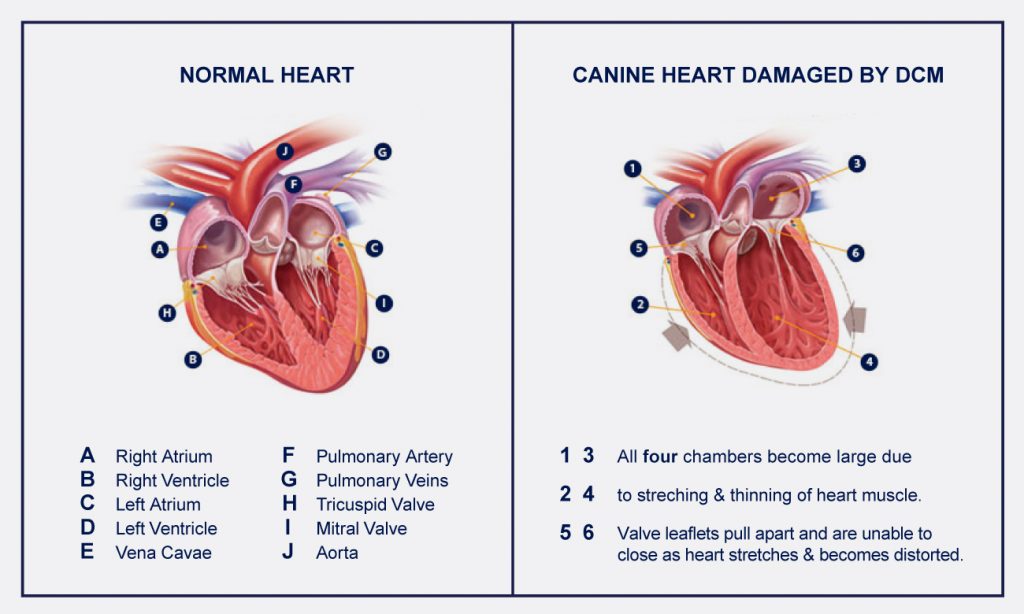HEALTH & WELLNESS

TRENDING

SIGN UP and Start Receiving
Our Monthly Newsletter,
The Chronicles
Congestive Heart Failure (CHF) as a Result of Dilated Cardiomyopathy (DCM)

Did you know that canine heart disease is just as dangerous in dogs as it is in people?
HOW DOES THE HEART WORK?
The heart is one of the most miraculous “machines” that works like a pump and beats thousands of times per day.
- The heart is a combination of 2 pumps, and each pump has 2 chambers.
- The 2 pumps are divided by Left and Right sides.
- The blood enters the right side and is then pumped to the lungs, where the blood is oxygenated.
- The oxygen rich blood then flows into the left side of the heart, and from there it is pumped out into the body’s various organs.

WHAT IS DCM?
DCM is the second most common form of heart disease in a dog.
DCM is a disease of the heart muscle itself where the dog’s heart fails to pump effectively. Heart contractions are weak and therefore blood is not pumped through the body efficiently.
Typically, the heart stretches and enlarges, which over time further decreases its ability to pump blood around the body.

DON’T LOSE HOPE
With early diagnosis and appropriate treatment and management, you increase your dog’s opportunity to live a happier, healthier and longer life.
WHAT ARE THE CAUSES OF HEART DISEASE?
There are several ways your dog can be affected by heart disease:
Acquired Heart Disease
- Accounts for 95% of all heart conditions
- Disease that develops during the course of your dog’s life
- There are two principal causes of acquired heart disease:
– Valvular disease, which is also known as atrioventricular valvular insufficiency (AVVI)
– Dilated cardiomyopathy (DCM)
Congenital Defects
- Heart problems that your dog is born with
- Will usually be diagnosed when your dog is still a puppy
- Account for a very small percentage of the diagnosed heart-related problems
SIGNS OF DCM
In the early stages, signs of atrioventricular valvular insufficiency (AVVI) or dilated cardiomyopathy (DCM) are most likely to be subclinical. This preclinical phase can last for months or years. However, as the heart deteriorates and cardiac output decreases over time, AVVI and DCM ultimately lead to congestive heart failure (CHF) in dogs.
Common clinical signs of CHF that may appear as AVVI or DCM progresses include:
- Breathing changes
- Increased heart rate
- Difficulty breathing
- Shortness of breath
- Coughing
- Behavioural changes
- Lack of energy
- Depressed or withdrawn
- Exercise intolerance
- Easily tires
- Hesitates to go for walks
- Poor appetite and weight loss
- Weakness and fainting
- Restlessness, especially at night
As soon as clinical signs of DCM appear, it’s important to get therapeutic intervention immediately.
No cure for DCM exists and surgical intervention is rarely practical in canine patients, so therapeutic goals focus on improving clinical signs and prolonging life.
Related Articles









